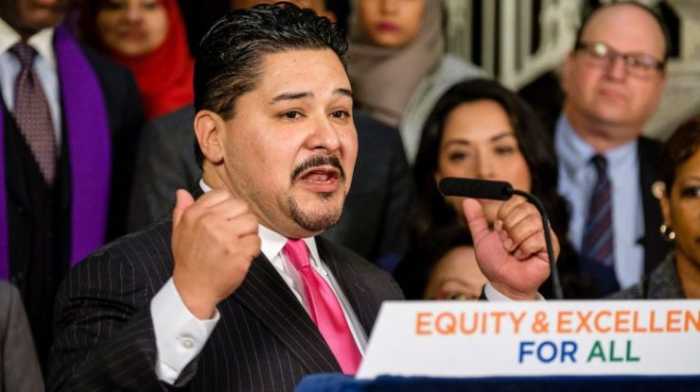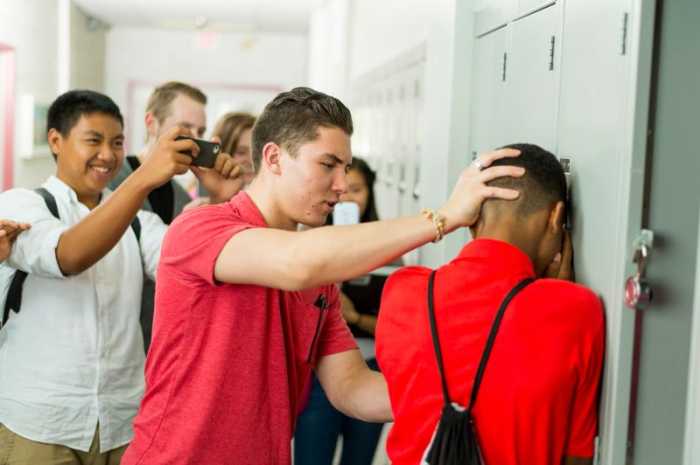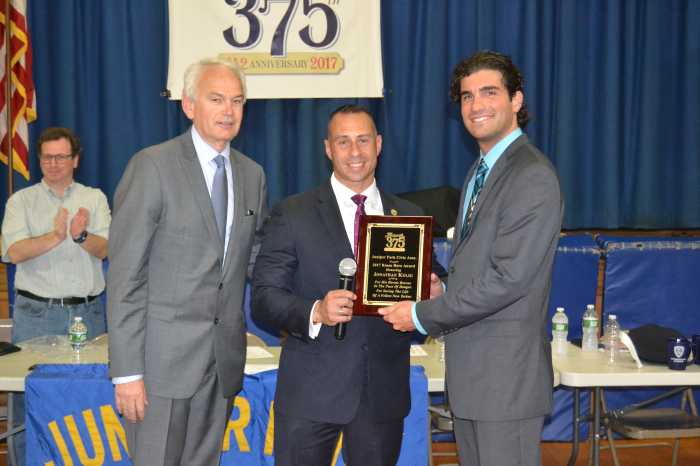Several members of Community Education Councils (CEC) in Queens are being asked by the Department of Education (DOE) to sign non-disclosure agreements (NDA) in the interview process for new superintendents, and some members told QNS they hesitated to sign, questioning whether or not the DOE is overreaching their scope of power.
Since Chancellor David Banks was appointed to run the DOE earlier this year, he announced that superintendents would have to reapply for their jobs to “assess whether they are the best individuals to support innovative schools and school leaders.”
This decision has faced intense pushback from local school districts, including Districts 24 and 30 in Queens. Members of the school districts are anxious that they’ll lose their incumbent superintendents, who parents and CEC members say are widely respected and beloved.
Superintendents have started the re-interviewing process, despite pushback from the community. The next step of the process, known as the C-37: Selection of Community Superintendents, involves a closed meeting with CEC members, a union representative and others to interview the candidates. Since candidates’ application materials will be shared in this meeting, all CEC members have to sign an NDA to move forward in their mandated duties, according to a DOE spokesperson.
The spokesperson declined to provide a specific comment for this story.
The issue that several CEC members have is that the C-37 regulations of the chancellor do not state that an NDA is required of any person involved in the process.
While most CEC members have already signed the NDA to continue interviewing candidates, they still have many questions that have been left unanswered.
CEC 24 Vice President Henry Choi said that although he signed the NDA, he was never provided proof that it was truly mandatory.
“I’m uncertain as to where it is mandated that participants are to sign NDAs if we wish to participate in the C37,” Choi said. “I hope it is not a veil for Vice Chancellor Desmond Blackburn and Banks to hide behind when the final choice of superintendents is released. I fear that the whole process has been anything but transparent.”
An NDA is common for similar hiring processes, like the C-30: Regulation Governing the Selection of Principals, where it clearly stipulates a confidentiality agreement. The C-37 document does not.
Kelly Craig, a CEC 30 member appointed by the Queens Borough President, said that she has yet to sign the NDA since the DOE has not answered any of her numerous inquiries.
“I cannot believe this is a taxpayer, city organization,” Craig said. “I don’t sign any NDA unless I comprehensively know what I’m signing.”
CEC members across the board have agreed the NDA for the superintendent interview process is extremely vague, compared to the one mandated for the hiring of principals.
“The principal NDA is very detailed and meticulous,” Craig said. “The superintendent NDA is so generalized — I don’t know what I’m signing.”
CEC 30 member Deborah Alexander also signed the NDA to have a say in who leads her school district but criticized the DOE’s overreach and lack of community engagement.
“I don’t know under whose authority or what authority we’re supposed to sign, the DOE keeps saying we can’t participate if we don’t sign it,” Alexander said. “Community feedback in this process has been touted by the DOE as ‘so important’ and will be a significant factor in the hiring of the superintendents. But signing a confidentiality agreement means that no one will ever know what the community recommendation is. It gives the DOE cover — they can make a decision that goes against the recommendation and we’ll have no recourse to say, ‘Hey, that’s not what the community wanted.’”
The DOE’s attempt at incorporating community engagement in this process has been a failure, according to multiple CEC members.
“There has been really no community outreach to understand whether there is a want or need for superintendents to be replaced,” Choi said. “We’re very disappointed in Banks’ repeated messaging that community involvement and parent voices are very important and we don’t see that. It’s one thing to verbally or in a press release state something and then to see the actions of an institution don’t line up with their messaging.”



































